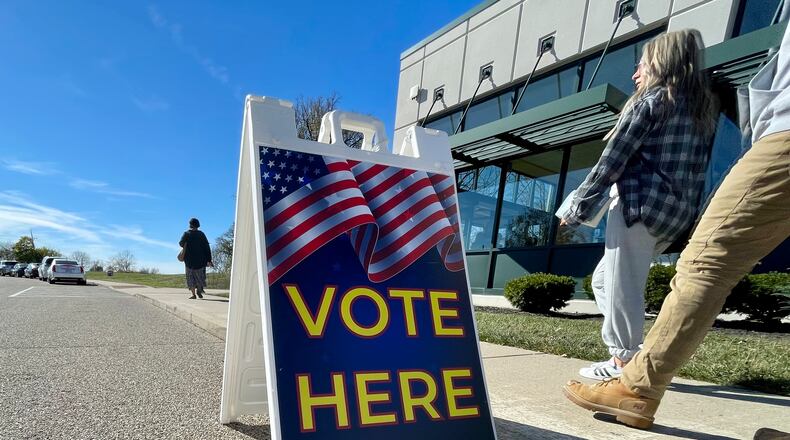More than 77% of Ohio voters cast ballots in favor of both issues.
Issue 1 will amend Ohio’s Constitution to require the courts to consider public safety when setting bail amounts, including the seriousness of the offense, the suspect’s criminal record and his or her likelihood to return to court for future hearings and proceedings.
The ballot measure will empower the state legislature to decide what the courts must consider when determining bail instead of the Supreme Court of Ohio.
Supporters, like Ohio Attorney General Dave Yost, said this will improve public safety following an Ohio Supreme Court decision that ruled that the threats criminal suspects pose to the community cannot be used to determine bail.
“It has been less than 10 months since the DuBose v McGuffey decision undercut the ability of prosecutors and judges to protect Ohioans,” said Yost in a prepared statement. “The speed of the effort to reject this decision shows how strongly voters feel about this issue.”
He added, “Today’s ballot results are an unmistakable warning to judges who might ignore Ohio law and common sense and try to impose their personal views on Ohio citizens and families.”
Hamilton County Prosecutor Joseph Deters, who helped spearhead the ballot initiative along with Yost, said the margin of victory made it very clear that Ohioans want judges to consider safety when setting bail.
Foes said the measure would be a devastating blow to efforts to reform the deeply flawed bail system and would put lawmakers in charge of bail decisions instead of the courts
Critics claimed judges can deny bail when suspects are a threat to the public and the purpose of bail is to ensure suspects show up to court.
Issue 2 will modify the state Constitution to explicitly state that only U.S. citizens can vote in state or local elections.
The measure would prohibit local governments from allowing people to vote in local elections if they are not legally qualified to vote in state elections.
Ohio Secretary of State Frank LaRose and other supporters said allowing non-citizens to vote would “cheapen” the value of citizenship.
LaRose on Tuesday night said a “large majority” of voters from both parties decided to close a loophole that emerged a couple of years ago with Yellow Springs’ ballot initiative.
Yellow Springs in 2019 held a referendum that would allow residents who are not U.S. citizens to vote for local offices.
But it never went into effect after LaRose ordered Greene County not to accept voter registration forms from noncitizens.
“I think Ohioans spoke loud and clear on the common sense notion that citizenship has value and that one of the values that comes with being a citizen is the privilege of being a voter,” he said on Tuesday.
LaRose also denied opponents’ claims that the amendment is anti-immigrant, saying some of its biggest supporters were naturalized citizens who treasured the newly acquired right to vote.
Issue 2 opponents said the Ohio Constitution already says citizens can’t vote, and they warned that the measure could prevent 17-year-old Ohioans from voting in primary elections.
Critics claimed the language is overly restrictive and creates new barriers to voting.
Staff writer Jim Gaines contributed to this story.
About the Author

